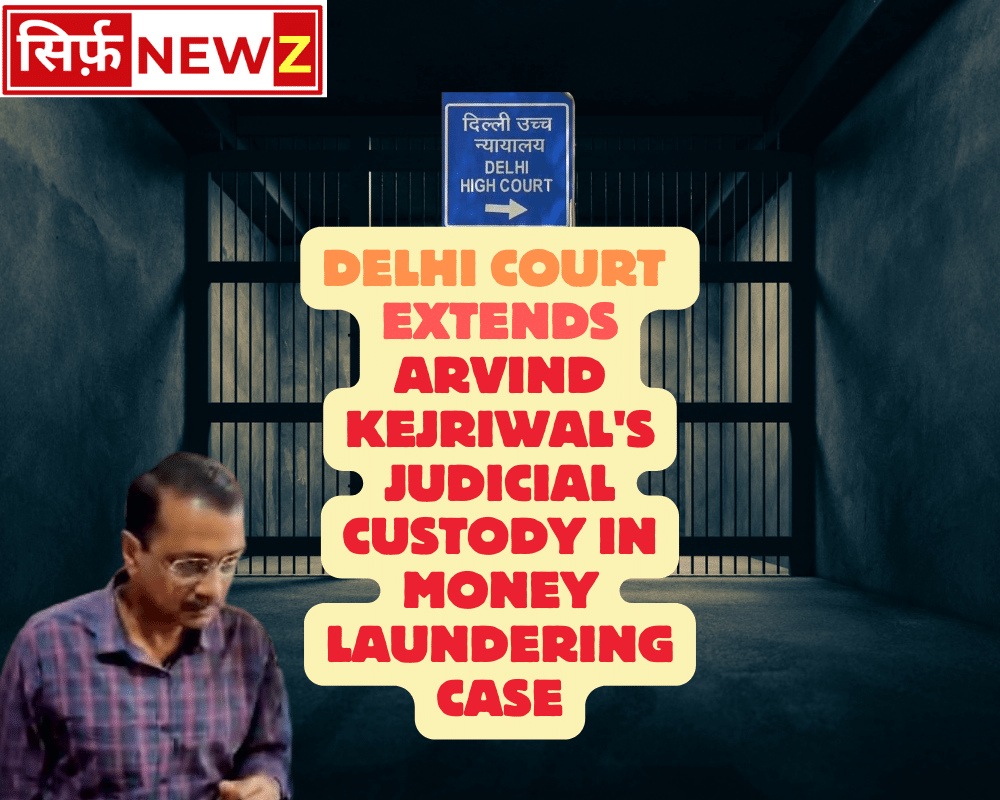A Delhi Court has extended the judicial custody of Chief Minister Arvind Kejriwal until April 23 in connection to a money laundering case linked to the scrapped liquor policy. Kejriwal, who was arrested on March 21, appeared virtually before Special Judge Kaveri Baweja of the Rouse Avenue Courts for the extension of his custody.

The decision to extend custody until April 23 was made in alignment with the end date of the judicial custody of the co-accused, BRS leader K Kavitha.
Prior to this extension, Kejriwal had approached the Supreme Court challenging a Delhi High Court ruling that dismissed his plea against arrest by the Enforcement Directorate (ED) and subsequent remand in the excise policy case.
On April 9, the High Court had dismissed Kejriwal’s plea for release from jail, rejecting his argument of political vendetta, especially during the impending Lok Sabha elections. The court emphasized that Kejriwal’s absence from nine ED summons over six months indicated a lack of cooperation, weakening claims of special privilege as Chief Minister.
In response, Kejriwal filed an appeal against the High Court’s judgement, arguing that there was insufficient material in the possession of the Enforcement Directorate to infer guilt under Section 19 of the Prevention of Money Laundering Act (PMLA). He highlighted that his arrest was primarily based on contradictory and delayed statements of co-accused turned approvers.
Kejriwal’s arrest by the ED on March 21 pertains to a money laundering investigation related to alleged irregularities in the now-cancelled Delhi excise policy 2021-22.
The case continues to draw attention as legal proceedings unfold, shaping the political landscape in Delhi.
Read Also:
